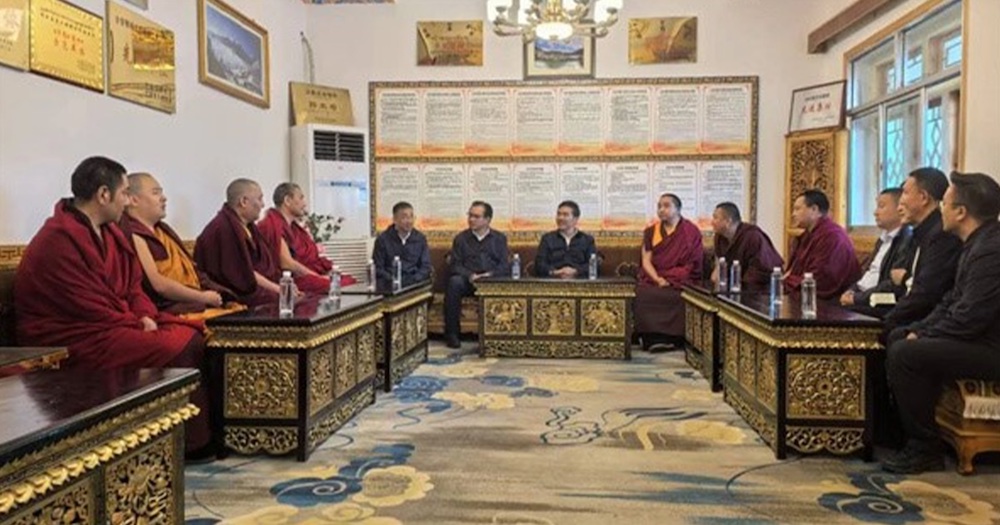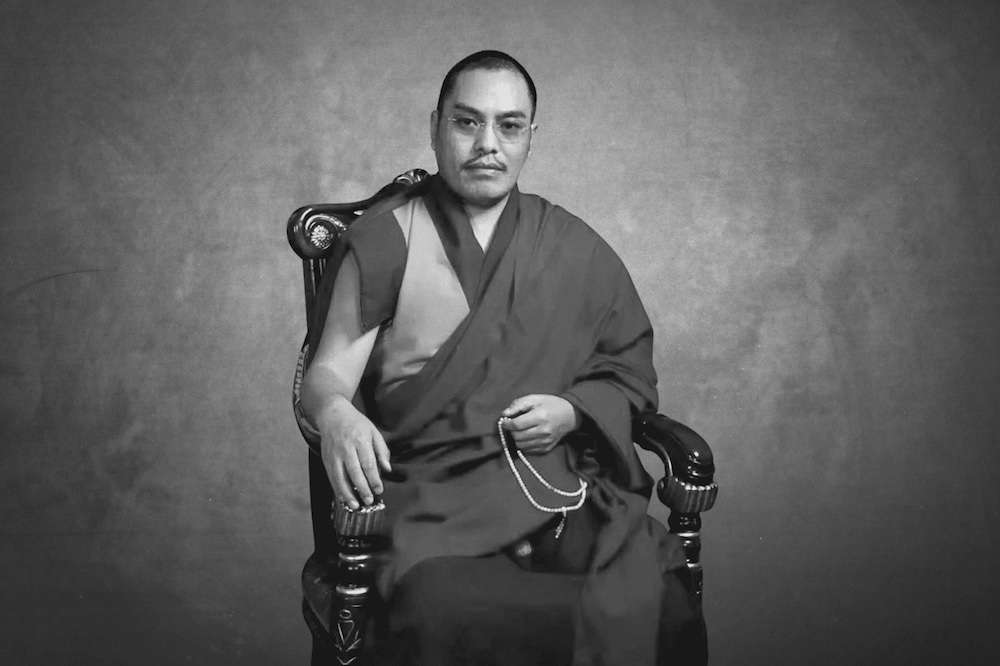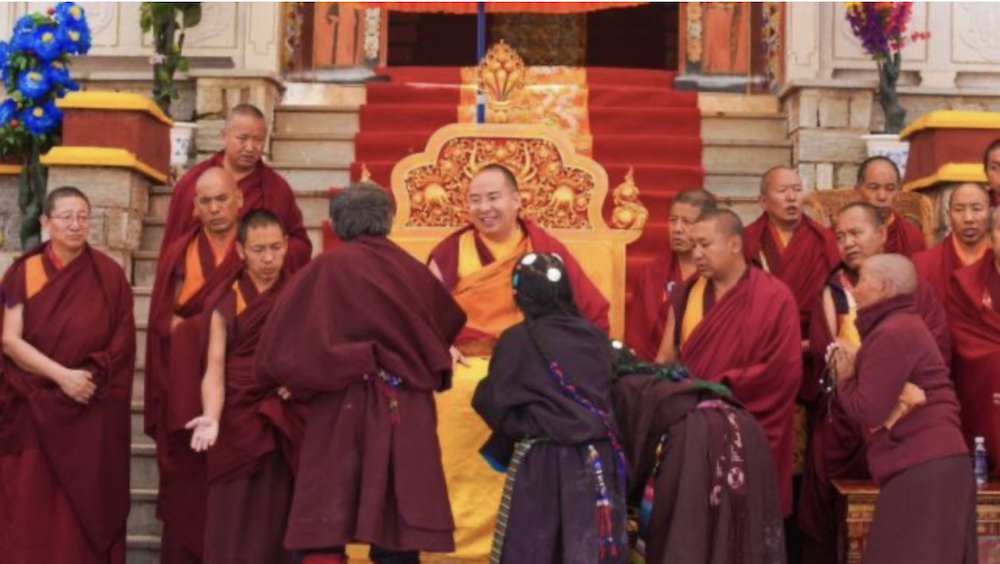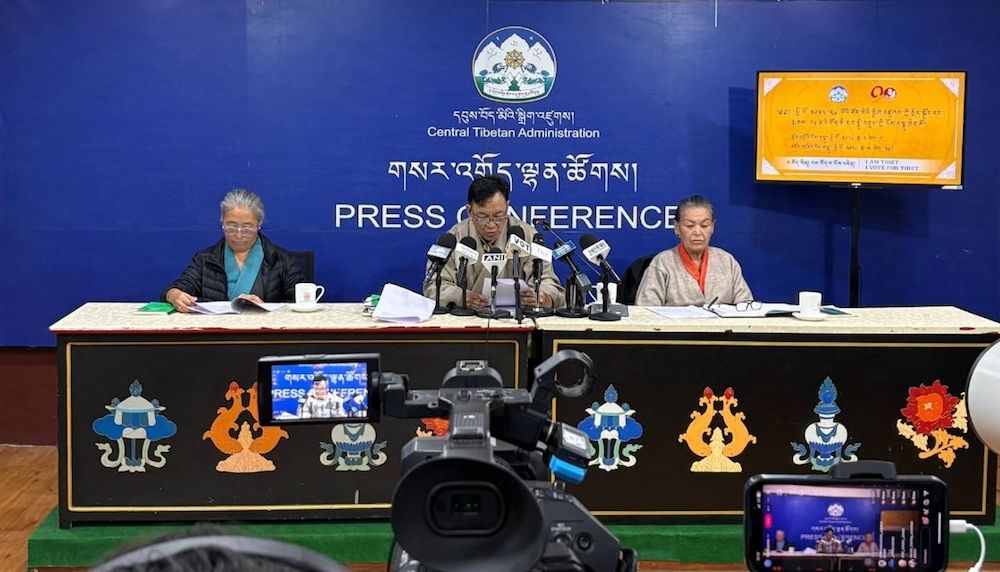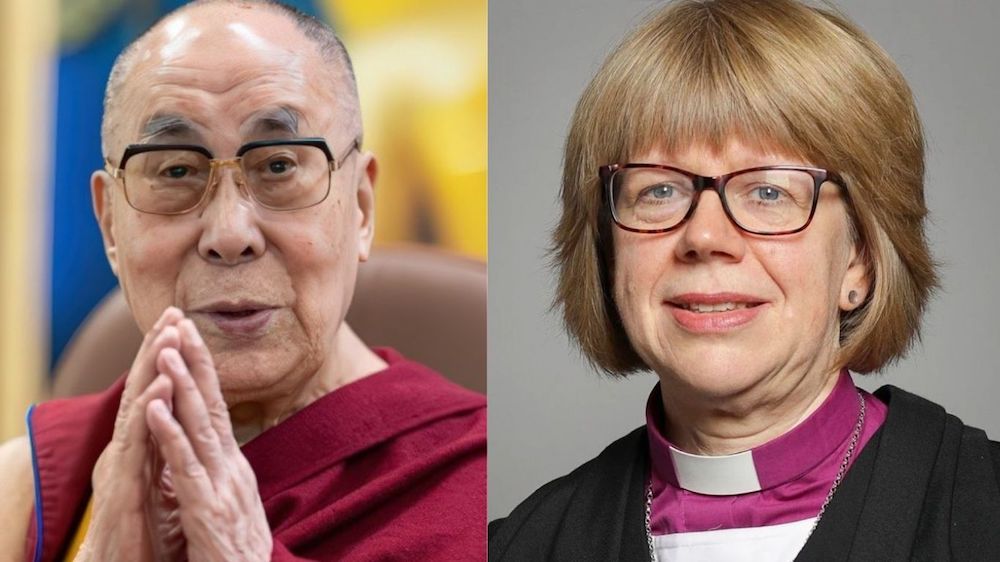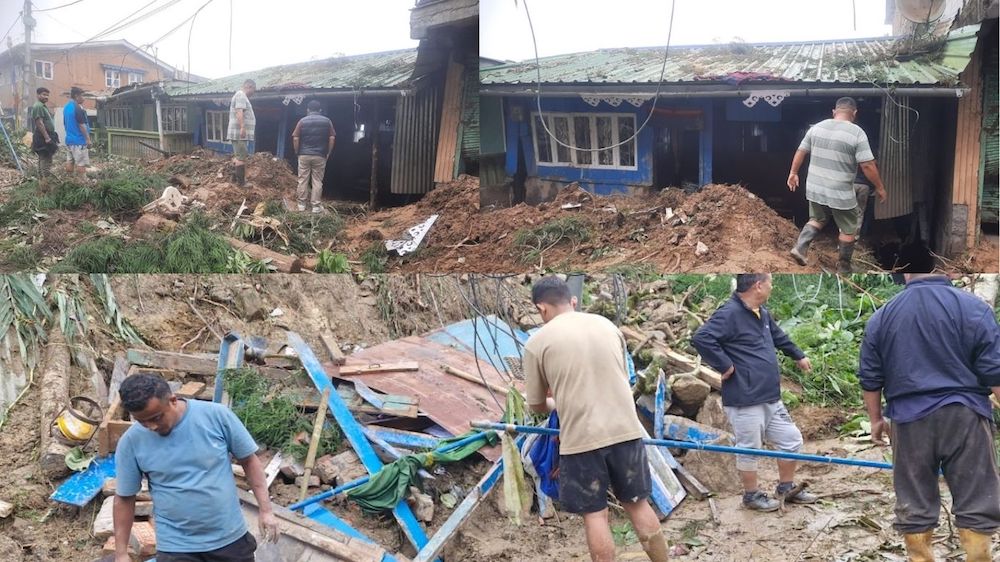Tsering Dhundup
DHARAMSHALA, July 17: As the global Tibetan community joyously marked the nongenerian Tibetan leader His Holiness the Dalai Lama’s 90th birthday on July 6, with major celebrations in Dharamshala and across the world, an atmosphere of fear, surveillance, and intimidation gripped Tibetans inside Tibet under Chinese rule.
According to a detailed report by Tibet rights group based in the US, the International Campaign for Tibet (ICT), authorities across the so-called Tibet Autonomous Region and Tibetan areas in Sichuan, Qinghai, and Gansu provinces launched an intensified campaign to suppress any public or private tribute to the exiled Tibetan spiritual leader.
Between July 1 and 6, officials reportedly convened meetings across monasteries in Lhasa, including the renowned monastic universities of Drepung and Ganden, warning clergy against engaging in “anti-separatist” activities. Armed patrols maintained a 24-hour presence in Tibetan neighbourhoods, while even food delivery personnel were allegedly enlisted to monitor civilian behaviour.
Kumbum Monastery and Labrang Monastery in the Tibetan province of Amdo saw visible police activity, with searches, interrogations, and severe curbs on movement. In Ngago village, over 40 homes were reportedly raided, with authorities confiscating portraits of the Dalai Lama and other prominent Tibetan lamas living in exile. Reports also indicated physical harassment and beatings during these operations.
Heightened military presence and tight surveillance were observed in key Tibetan-populated areas, including Lhasa city, Ngaba and Dzoge counties, Lithang and Nyakchu counties, Kardze, Labrang, and Luchu counties, and Kanlho, Pema, and Kangtsa counties.
In Lithang and Nyakchu, all local leaders were reportedly summoned and instructed to prevent any “political incidents” around the Dalai Lama’s birthday. Officials emphasised ideological discipline and loyalty to the Chinese Communist Party, underscoring Beijing’s deep unease over Tibetan expressions of religious devotion.
On June 30, just days before the birthday, the so-called TAR Party Secretary Wang Junzheng met with Beijing’s appointed Panchen Lama, Gyaltsen Norbu, who was mobilised to conduct “religious activities” in Lhasa. State-run Tibet Daily reported Norbu’s calls for promoting “ethnic unity” and “patriotism,” furthering Beijing’s efforts to undermine the Dalai Lama’s spiritual influence.
This orchestrated deployment of Norbu during key dates is seen as part of China’s strategy to eclipse the Dalai Lama’s legacy and reshape Tibetan Buddhism under Party control.
Across Tibetan areas like Ngaba, Dzoge, and Kanlho, officials intensified censorship efforts, banning gatherings, suppressing images of the Dalai Lama, and punishing online tributes. At Labrang and other major monasteries, authorities carried out propaganda campaigns calling for the “Sinicisation” of Tibetan Buddhism, demanding obedience to China’s position on the Dalai Lama’s succession and religious governance.
Deputy Party Secretary Yang Wu and other senior officials conducted inspection tours to enforce ideological compliance, scrutinising monastic management and religious education.
Despite these oppressive measures, many Tibetans found quiet yet powerful ways to honour their spiritual leader. A young Tibetan singer released a rendition of a beloved song celebrating the Dalai Lama, with lyrics highlighting his birthplace in Amdo, his exile in India, and the Tibetan people’s enduring longing for his return.
Others shared symbolic images online, some featuring Chenrezig, the Buddha of Compassion, whom the Dalai Lama is believed to embody alongside heartfelt prayers for his long life and good health. One widely circulated social media post featured a stanza from the Dalai Lama’s 1960 prayer Words of Truth: “By the profound interdependence of emptiness and relative forms…May this truthful prayer be unhindered and quickly fulfilled.”
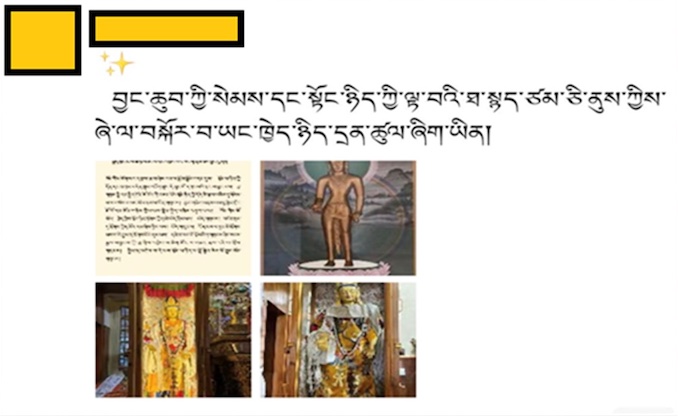

Tencho Gyatso, president of ICT, condemned the Chinese government’s repressive actions, stating, “The heightened security around the Dalai Lama’s birthday shows that the Chinese government is conscious of the fact that its rule in Tibet does not enjoy support and legitimacy among Tibetans.”
China routinely tightens security in Tibet during major religious and political occasions, especially those linked to the Dalai Lama or Tibetan cause, such as his birthday on July 6, Tibetan Uprising Day on March 10, and festivals like Losar or Monlam. Authorities deploy armed police, increase surveillance, restrict movement, monitor online activity, and often conduct raids or interrogations to suppress public gatherings, religious expressions, or any perceived dissent. These measures aim to prevent displays of Tibetan nationalism and loyalty to the Dalai Lama, reflecting Beijing’s efforts to maintain strict control over the region.


